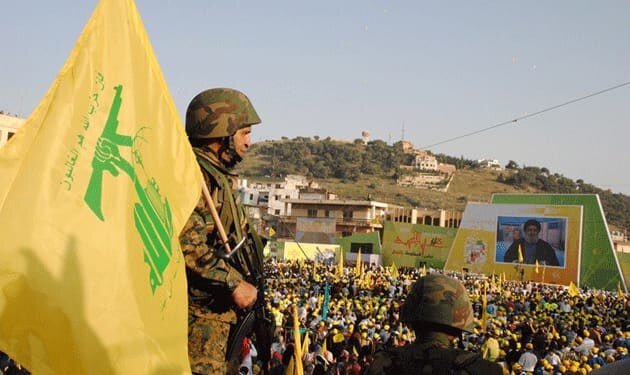Why did Hezbollah enter the war to support Gaza?

BEIRUT — Hezbollah entered the war in support of Gaza within a broader, cumulative context that went beyond political fervor or fleeting emotion.
The historic decision was not an uncalculated adventure; rather, it was the fruit of a strategic reading of the regional landscape and Hezbollah’s position and role in the conflict with Israel since the July 2006 war, when it consolidated the deterrence equation that prevented the enemy from launching any large–scale aggression against Lebanon for eighteen years.
However, Operation Al-Aqsa Flood shifted the balance and reopened the conflict’s fundamental issues, making war on Lebanon a matter of time, regardless of Hezbollah’s position on opening a support front.
From the first hours of October 8, 2023 operation, Hezbollah realized that what happened in Gaza was not a passing event, but rather a political and military earthquake in the West Asia region.
Benjamin Netanyahu’s rhetoric from the start of the war clearly revealed his intention to exploit Al-Aqsa Flood to reshape the region, a pattern repeated on subsequent occasions.
For Hezbollah, leaving Gaza to face its fate alone was tantamount to political, moral and ethical sin; it would be perceived as abandoning the Palestinian cause, which has been the foundation of its existence and identity since its inception.
Hence, the decision to join the support front was made to preserve the principle and the credibility of the Resistance discourse before its audience and the Axis of Resistance in general.
But the religious-moral motive alone was not decisive; Hezbollah, which had been monitoring military and technological transformations in Israel for years, was aware that the enemy was seeking to launch a preemptive strike against it sooner or later.
Statements by enemy leaders, from Galant to Eisenkot, confirmed that the discussion of a preemptive strike against the Resistance was already on the table in the first days after the Al-Aqsa Flood attack and that Washington’s intervention was what froze implementation.
In other words, Hezbollah’s involvement in the war was not the cause of its outbreak, but rather a factor in determining its timing and form.
The Israeli enemy was looking for a pretext, not a justification, to launch an aggression it had been preparing for years.
On the other hand, the balance of deterrence that had protected Lebanon since 2006 was unlikely to last long after the earthquake that struck Israeli national security in Gaza.
The image of the “invincible army” was shaken, the Israeli sense of threat deepened, and voices rose in the northern settlements demanding the elimination of what they called the “Lebanese threat.”
Here, Hezbollah found itself faced with two bitter choices: either stand idly by to observe the genocide in Gaza, or open a limited front to impose a new equation.
In its field calculations, Hezbollah attempted from the outset to control the pace of engagement so that it would not escalate into a full-scale war, focusing on exhausting the enemy on the northern front without expanding the scope of the confrontation.
This approach aimed to prevent a major explosion while simultaneously affirming that Lebanon was not a bystander but rather an integral part of the Resistance equation.
Over time, the support front transformed into a real pressure point on the Israeli occupation entity, forcing it to redistribute its forces and resources between Gaza and the north, which contributed to relieving some of the pressure on the Palestinian Resistance.
Indisputably, the decision to participate was not without costs. Lebanon bore enormous economic and security burdens, and its southern regions were targeted almost daily, with hundreds killed and wounded.
Nevertheless, Hezbollah remained committed to its choice, believing that the cost of abstention would have been higher.
Its withdrawal would have been interpreted in the Arab and Islamic consciousness as a betrayal, leading to a dangerous rift between the Resistance factions and perhaps even sectarian strife, which Washington and Tel Aviv had been betting on for years.
Engagement in the war, despite the heavy losses, protected the unity of the Axis of Resistance and kept the Palestinian flag high in the public consciousness.
It also thwarted, at least partially, the Israeli enemy’s attempts to strip Hezbollah of its nationalist and Islamic dimension and isolate it politically.
Thus, the choice of support became a moral and historical position, transcending the confines of current politics to the level of the collective conscience in the region.
Hezbollah could have chosen neutrality, but neutrality in a moment of genocide is not a position, but rather complicity!
Hezbollah viewed the Gaza battle as an extension of its own battle, and that defending Palestine was a defense of Lebanon itself!
The war, which had been doomed for Lebanon since Operation Al-Aqsa Flood was not the result of a Lebanese decision, but rather the result of an imbalance of power in the region.
Confronted with an Israeli-American project seeking to reshape West Asia by force, Hezbollah chose to confront, not wait its turn in line.
In this sense, Hezbollah involvement was not an adventure, but a historical imperative imposed by geography, principles, and history, as well as by the equation of existence.
